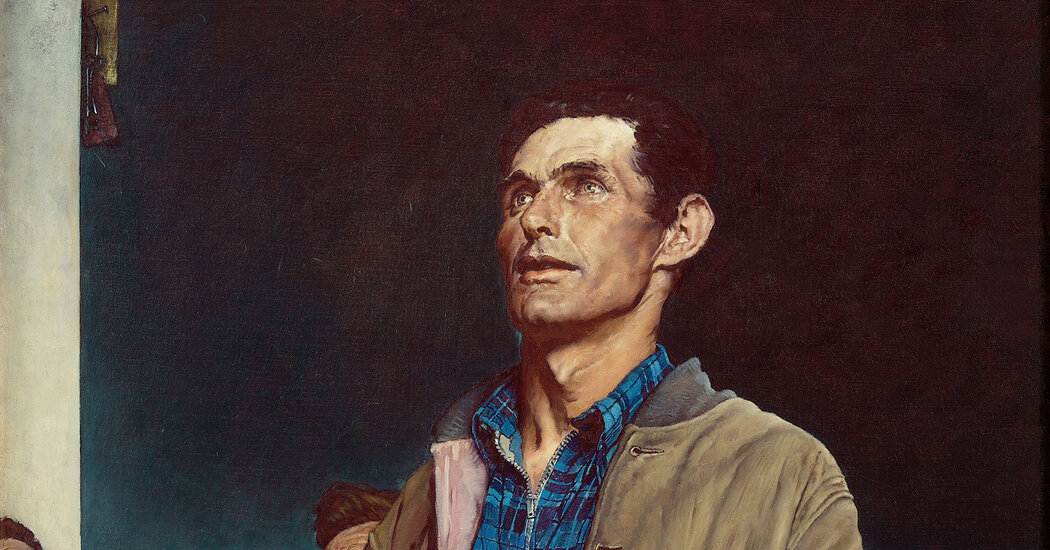
So you have an opinion you want to share online — something you need to get off your chest. Maybe it’s about the current political climate. Maybe you want to have the final word on whether or not people should wear their shoes in the house.
If you know you have a spicy take on your hands, you might look to the American painter and illustrator Norman Rockwell to help you share it. Across social media, his work “Freedom of Speech” appears alongside all manner of strong opinions, from the highly serious to the absurd to the esoteric, enshrining itself into the lingua franca of the internet decades after its creators’ death.
The oil painting, which shows a man dressed in work wear standing and poised to speak amid a crowd of men in suits, is part of a series by Rockwell inspired by Franklin D. Roosevelt’s 1941 State of the Union address arguing for U.S. involvement in World War II. In his remarks, the president outlined four universal freedoms that Americans should fight to guarantee for all: freedom of speech, freedom of worship, freedom from want and freedom from fear.
According to the internet encyclopedia Know Your Meme, the painting began showing up in posts on X, then Twitter, in 2020. It wasn’t until two years later, though, that it started spreading widely, first with a post by a user who shared the image with an opinion on shrimp-fried rice (“a shrimp did not fry that rice!”).
Since then, the image has been used to take a stance on divisive personal essays, weigh in on Taylor Swift albums, proselytize the merits of hard-shell tacos and decry the state of professional football.
On the day former President Donald J. Trump was found guilty of 34 felony counts in a New York court, Mary Katharine Ham, a Fox News contributor, posted a picture of the painting with the comment, “jailing your political opponents is bad, actually” — to which the frequent anti-Trump poster Armand Domalewski replied with the same image and the comment, “nobody being above the law is good, actually.”






